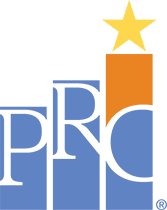PRC Community Health Needs Assessment partner Navicent Health of Macon, Georgia, will receive the 2018 AHA Equity of Care Award, while Regional Health in Rapid City, South Dakota has been named an honoree. The award recognizes hospitals and health systems for their efforts to reduce health care disparities, and advance diversity and inclusion to support the goals of the National Call to Action to Eliminate Health Disparities, of which the American Hospital Association (AHA) is a founder.
“Every day, hospitals and health systems strive to be leaders, innovators, and connectors in their communities, within their leadership and staff, and across the field,” said AHA President and CEO Rick Pollack. “This year’s Equity of Care winner and honorees are pushing the field forward in diversity, inclusion, and health equity. They have demonstrated that hospitals and health systems are committed to understanding the social determinants of health within their communities, and are on the front lines of bridging the gaps of equity within the field.”
The AHA Equity of Care Award is awarded annually and was created to recognize outstanding efforts among hospitals and health care systems to advance equity of care to all patients and to spread lessons learned and progress toward achieving health equity. Applicants from across the country showcased measurable improvement in the performance of equity, diversity and inclusion within the hospital, health system or community, and provided clear models for the field.
“I’m extremely proud to partner with both Navicent Health and Regional Health,” Bruce Lockwood, Director of Community Health at PRC said. “It’s always exciting to see our CHNA data utilized to further improvements in community health beyond fulfilling IRS requirements, and both these organizations have done an outstanding job of committing to their communities.”
Jana Distefano, PRC Associate Director of Community Health, agrees. “Working with teams who are so dedicated to community health makes a significant impact on the data. Because these organizations include a PRC population-based survey instrument they really do have powerful ways to look at the most timely data and truly explore health equity measures.”
Since committing to AHA’s Equity 123 pledge in 2015, Navicent Health has taken measurable steps to improve diversity, inclusion and health equity and has demonstrated comprehensive gains in addressing the health disparities in the community it serves. During fiscal year 2014-2015, Navicent Health made a commitment to document health outcomes by evaluating race, ethnicity, and language (REaL) preference data collected at the time of admission in patients with certain conditions.
As a result, programs were created to help influence social determinants of health and improve condition-specific access to clinics for diabetes, heart failure and chronic obstructive pulmonary disease (COPD). Since then, Navicent Health has resolved readmission health disparities among African American patients with COPD, heart failure, and diabetes, as well as health disparities among females with diabetes. In addition, it is improving the overall readmission disparity among African Americans.
“We are thrilled at all that our Healthy Communities program has accomplished in such a brief time frame. We are taking measurable steps to improve the health of individuals, minimizing disparities and ensuring equity for all. Recognition from AHA is a testament to the work taking place at Navicent Health each day. We are humbled by this recognition, and grateful to serve our community,” said Dr. Ninfa M. Saunders, FACHE, President and CEO of Navicent Health.
Navicent Health’s dedication to health equity also resulted in the development of a cultural competency and engagement program, which supported patients, employees, associates, physicians, vendors and other partners in 2017. In addition, the Navicent Health Board follows a competency-based performance guide in recruitment, selection and re-appointment of board members. Each year, Navicent Health uses an assessment to identify gaps and opportunities in talent and diversity on the board. Since implementing this tool, diverse board membership and board committee leadership increased to 35.3 percent and 41.6 percent, respectively in 2018.
Navicent Health is also committed to conducting a Community Health Needs Assessment every three years, which identifies health disparities in its service area. One of the focus areas from the 2015 survey was access to care, due to the limited number of physicians working with Medicare, Medicaid and vulnerable populations. Navicent Health addressed this challenge by giving initial funding to assist Macon-Bibb County’s Federally Qualified Health Center in expanding into new areas of Bibb County, augmenting gaps in services to other clinics and by developing new access points through community partnerships with government, civic, recreational and educational establishments and religious organizations.
Additionally, Regional Health in Rapid City, South Dakota, has been named as an AHA Equity of Care Honoree. In 2016, Regional Health launched a system-wide effort to create awareness focused on cultural competency education within a 12-month period. As a result, 60 percent of caregivers participated in face-to-face training. This included special sessions created for medical staff. In 2017, this training was extended to all new caregivers on their first-day orientation. In 2018 an additional session was included on their 90th-day follow-up orientation. Regional Health also developed a job shadowing program for Native American students and organizations focused on eliminating social and economic disparities. In addition, Regional Health has consciously worked to diversify the members of its board governance. The System increased racial diversity on its board from zero percent to a current 15 percent.
“PRC has partnered with both organizations three times over the past decade, which has given the hospital and community a great opportunity to observe the trends/changes in population health based on their efforts,” Lockwood said. “This long-term commitment to care has really paid off.”
Let PRC inform, inspire, and guide your community health process.


